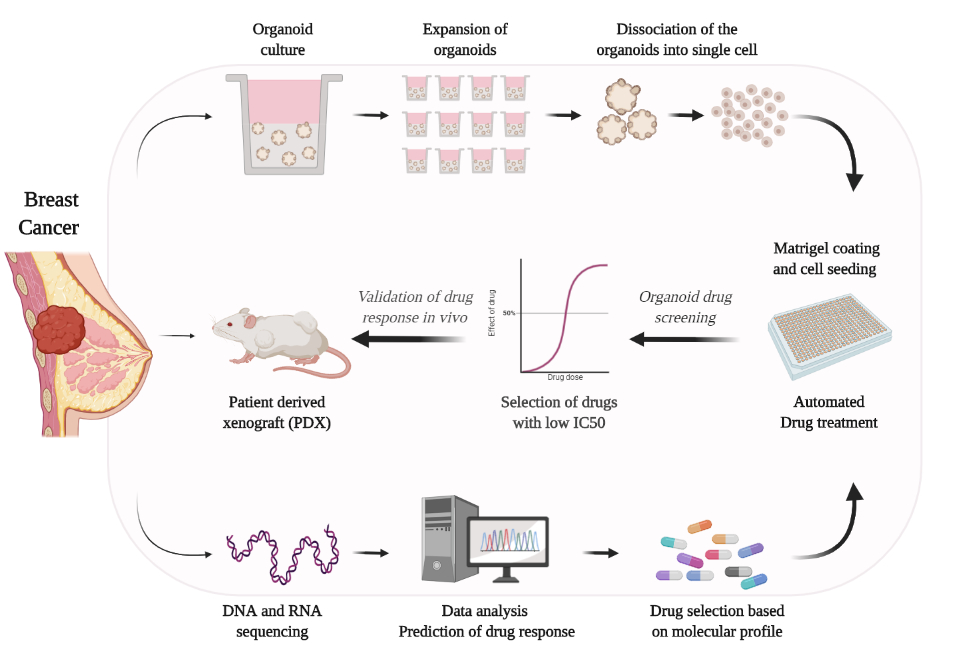Breast cancer (BC) is the most frequently diagnosed cancer and cause of cancer death among women worldwide. BC research is currently based mainly on traditional cell culture and animal models. However, the inherent species gap between humans and animals, as well as differences in organization between organs and cells, limit research advances. BC organoids can reproduce many of the key characteristics of human BC, thus providing a new platform for investigating the mechanisms underlying the development, progression, metastasis and drug resistance of BC. The application of organoid technology can also promote drug discovery and the design of personalized treatment strategies.
Advantages of 3D Breast Cancer Organoids
As compared to 2D cell lines, organoids provide a more complete and more thorough picture of disease progression, including phenotypic similarities and biomarker profiles when compared to patient's own tumors. Three-dimensional cell cultures of BC also show faster timepoint to collect quantitative data as compared to animal studies, and the in vitro properties of organoids make them a more practical choice in immunofluorescence research.
 Figure 1. Use PDX and organoid models to identify new treatments for breast cancer.
Figure 1. Use PDX and organoid models to identify new treatments for breast cancer.
OrganoLab has established a number of unique BC organoids representing the key molecular subtypes of BC. These organoids accurately recapitulate the initial patient biopsy, including the genetic mutations that cause the disease, and are produced in sufficient quantity, quality and consistency to support drug applications for compound screening. In addition, OrganoLab provides a series of organoid model characterizations including mutation profiling, immunohistochemistry and standard of care validation.
Benefits
- Innovative — Serves as a convenient platform to study the invasive ability of breast cancer cells
- Stable — Enables formation of large inverted organoids where the basement membrane forms on the interior surface alongside a breast cell line epithelium
- Flexible — Allows for long-term studies due to the robust maintenance of the inverted orientation
OrganoLab's technology can maximize the reproducibility of results. Our goal is to position organoid technology as a cost-effective tool for preclinical oncology studies. By working with OrganoLab, we're making it easier for oncology researchers and data providers to collaborate and speed up the development of new therapeutics.
References
- Sachs Norman, et al.; A Living Biobank of Breast Cancer Organoids Captures Disease Heterogeneity. Cell, 2018, 172(1): 373-386.
- Goldhammer, N. et al.; Characterization of organoid cultured human breast cancer. Breast Cancer Research, 2019, 21(1): 141.
- Roelofs C. et al.; Breast tumour organoids: promising models for the genomic and functional characterisation of breast cancer. Biochem Soc Trans. 2019, 47(1): 109-117.
- Sasmita AO, et al.; Organoids as Reliable Breast Cancer Study Models: An Update. Int J Oncol Res, 2018, 1(2): 008.
Online Inquiry
